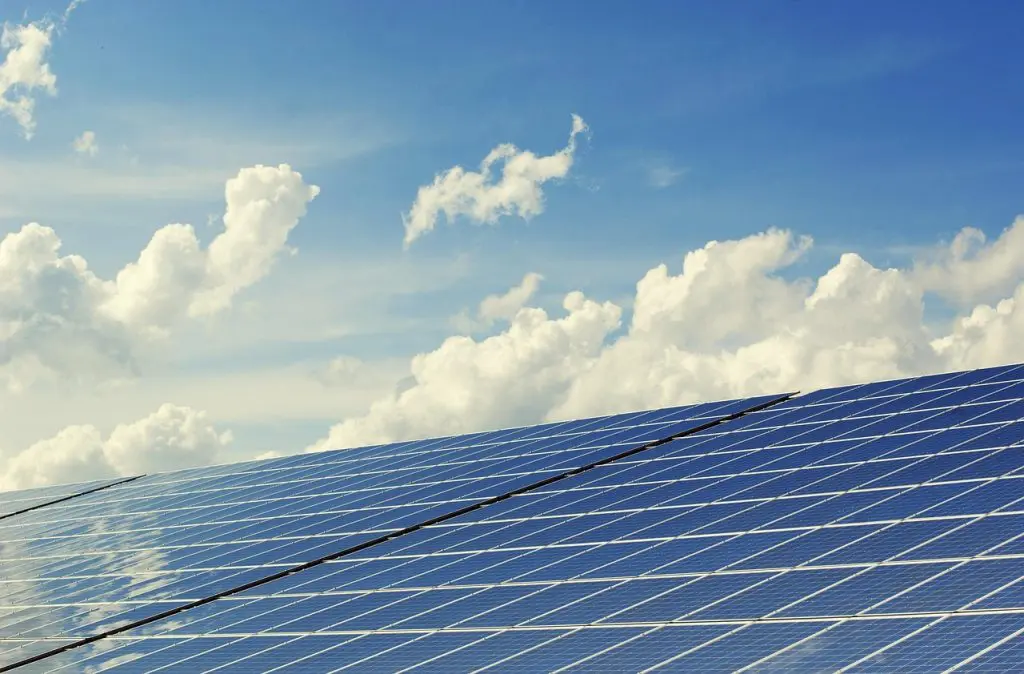
Irish Government Urged to Improve Support for Heat Pumps and Solar Energy to Cut Emissions The Climate Change Advisory Council (CCAC) has called on the Irish Government to significantly enhance grant supports for retrofitting, heat pump adoption, and solar PV installation, as part of its 2025 Annual Review focused on the Built Environment, Industry, and […]
The Climate Change Advisory Council (CCAC) has called on the Irish Government to significantly enhance grant supports for retrofitting, heat pump adoption, and solar PV installation, as part of its 2025 Annual Review focused on the Built Environment, Industry, and Waste sectors.
The Council’s report highlights an “urgent need” for emissions reductions and more sustainable practices across these areas, especially in the Built Environment, the only sector where emissions increased in 2024.
Ireland, like all EU member states, is bound by the European Green Deal and Fit for 55 package, which aims to reduce greenhouse gas emissions by at least 55% by 2030. However, Ireland remains one of the EU’s higher per-capita emitters. Accelerating national progress in sectors like the built environment is not only critical for domestic goals but also for meeting EU compliance standards and avoiding costly penalties.
Chair of the Council, Marie Donnelly, stated that emissions from residential buildings rose by 4.9%, while emissions from commercial and public buildings jumped by 7.9%. The sector encompasses residential, commercial, and public infrastructure.
“Government must urgently take action to increase the availability of grants for households focused on the uptake of heat pumps and maintain the level of grants for the installation of solar PV,” Ms Donnelly said.
She also emphasised the importance of utilising the rollout of smart meters to help consumers reduce costs, change energy consumption patterns, and lower emissions.
The CCAC said increased funding would help Ireland meet its climate targets, lower energy costs, improve efficiency, and enhance household resilience, particularly in light of the colder weather early in the year, which contributed to rising household heating demand.
Recommendations include:
Finalising the Heat Bill by the end of the year.
Introducing enhanced supports for district heating networks.
Including a plan to phase out fossil fuel boilers in the upcoming National Building Renovation Plan.
Providing funding for retrofitting and solar PV in local authority housing.
Establishing a network of independent energy renovation advisors, especially for those experiencing energy poverty.
“The Council welcomes the recent allocation of funds to support the development costs of district heating projects and looks forward to the rollout of district heating networks in Ireland. This can stabilise costs for consumers and help protect Ireland against the volatility of fossil fuel prices,” said Ms Donnelly.
The Council’s call for energy renovation advisors and targeted grants underscores a growing recognition of climate equity. Households in energy poverty are often unable to afford retrofitting or clean energy upgrades, yet they pay disproportionately high energy bills. Ensuring equitable access to climate solutions is essential to delivering a just energy transition.
While Ireland’s Deposit Return Scheme has boosted recycling uptake, overall waste volumes remain high, and household recycling rates are stagnating. Ireland’s circularity rate is 2.3%, far below the EU average of 11.8%.
The Council stressed the economic and environmental benefits of increasing circularity and reducing material consumption.
In the industrial sector, emissions decreased by 4.6%, mainly due to a decline in cement production volumes. However, the Council warned that Ireland has not yet decoupled industrial production from emissions, and urged for a faster approval process for low-carbon cement technologies.
They also recommended that all new buildings be required to include resource and waste management plans to reduce material use and construction waste.
The Climate Change Advisory Council’s latest review paints a clear picture: urgent action is needed to cut emissions in buildings, support vulnerable households, and reduce waste. Improved grants for heat pumps, solar PV, and retrofitting, alongside strategic planning and support structures like district heating and renovation advisors, are seen as critical steps toward a more sustainable, climate-resilient Ireland.
At All-Ireland Sustainability, we’re committed to building a greener, fairer island, together. Stay informed on the latest environmental initiatives, community action, and policy developments shaping sustainability across Ireland, North and South.
👉 Sign up for our newsletter today and be the first to hear about upcoming events, expert insights, and ways to get involved.
Whether you’re a seasoned advocate or just starting your journey, new members are always welcome.
Subscribe now and be part of the All-Ireland Sustainability network.